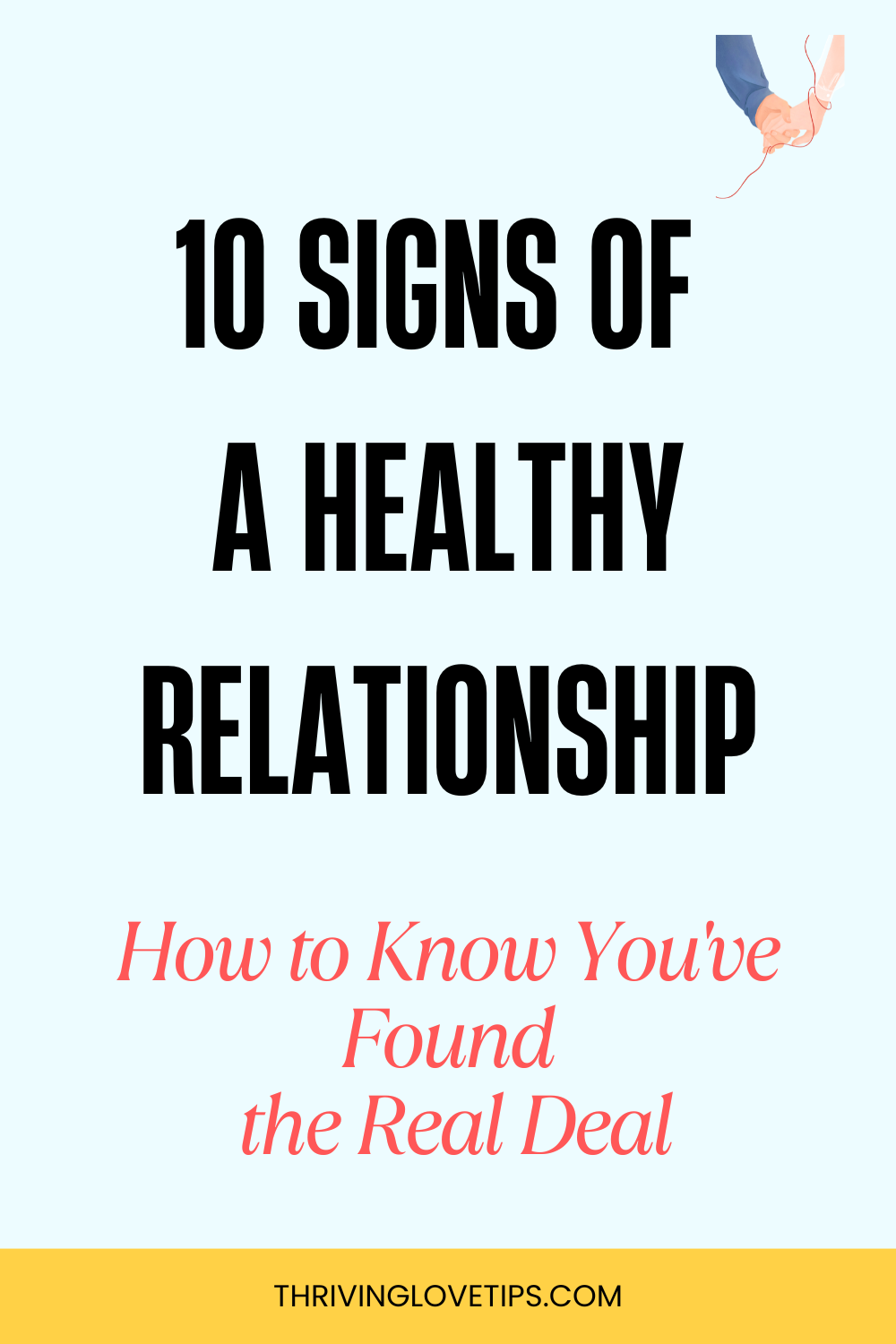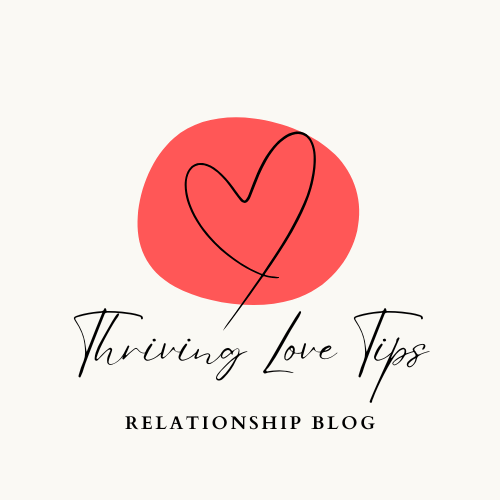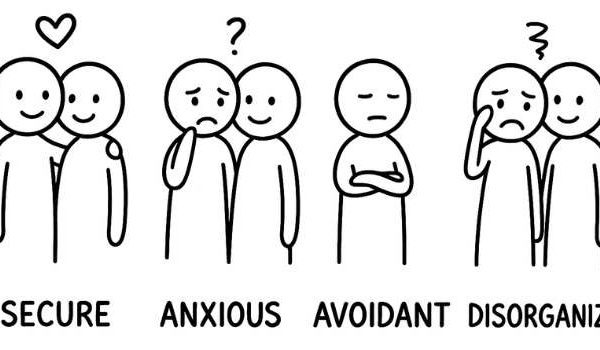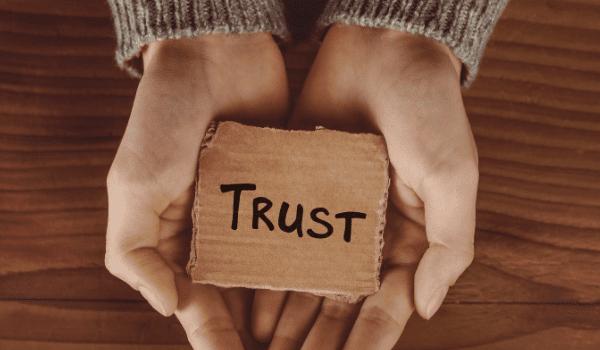We’ve all been there, lying awake at 2 AM, staring at the ceiling and wondering: Is this relationship actually good, or am I just comfortable? It’s one of those questions that seems simple on the surface but gets increasingly complicated the more you think about it. After all, every relationship has its ups and downs, its perfect moments and its not-so-perfect ones. So how do you tell the difference between a relationship that’s genuinely healthy and one that just looks good on Instagram?
The truth is, healthy relationships don’t look like the movies. They’re not all passionate declarations and grand romantic gestures (though those are nice too). Real, lasting love is built on a foundation of much quieter, more consistent things: respect, communication, trust, and the ability to be authentically yourself with another person. It’s less about butterflies and more about building something sustainable, something that can weather storms and grow stronger with time.
What makes this even trickier is that we’re constantly bombarded with conflicting messages about what relationships should look like. Social media shows us highlight reels of other people’s romances, making us wonder if we’re missing out. Rom-coms teach us that love should be effortless and that the right person will magically complete us. Meanwhile, our own past experiences, family patterns, and personal baggage all influence what we think is “normal” in a relationship.
But here’s the thing: healthy relationships have recognizable patterns. They share certain characteristics that distinguish them from relationships that are merely surviving or, worse, actively harmful. Learning to recognize these signs isn’t just helpful for evaluating your current relationship. It also helps you understand what to look for in future partnerships and, perhaps most importantly, what you deserve.

1. You Feel Safe Being Completely Yourself
In a healthy relationship, you don’t have to perform or pretend. You can be the messy, imperfect, sometimes-grumpy version of yourself without fear of judgment or rejection. This doesn’t mean you never make an effort or that you let yourself go completely. It means that on days when you’re not at your best, when you’re stressed or vulnerable or just plain weird, your partner still makes you feel loved and accepted.
Dr. Sue Johnson, developer of Emotionally Focused Therapy, calls this “secure attachment.” It’s the feeling that your partner is your safe haven, someone you can turn to when the world feels overwhelming. In practical terms, this looks like being able to cry in front of your partner without embarrassment, sharing your wildest dreams without ridicule, or admitting your deepest fears without them being used against you later.
This safety extends to all aspects of your personality. You don’t have to hide your quirks, downplay your achievements, or pretend to be less intelligent, ambitious, or passionate than you are. A healthy partner celebrates what makes you uniquely you, even the parts that might be unconventional or challenging.
Think about it this way: if you find yourself constantly editing your thoughts before you speak, hiding parts of your life or personality, or feeling like you’re walking on eggshells around your partner, that’s a red flag. Real intimacy requires vulnerability, and vulnerability requires safety. Without that foundation, you’re not building a genuine partnership. You’re just managing an image.
Related Post: 10 Signs Your Relationship Is Beyond Repair
2. Communication Flows in Both Directions
Healthy relationships thrive on open, honest communication, and crucially, that communication goes both ways. You’re not just talking at each other or waiting for your turn to speak. You’re actually listening, processing what your partner is saying, and responding thoughtfully.
Good communication in a relationship means several things. First, you can talk about the hard stuff without it turning into World War III. Discussing finances, addressing hurt feelings, or negotiating differences doesn’t have to be a relationship-ending event. You’ve figured out how to disagree respectfully, to express your needs clearly, and to hear your partner’s perspective even when it differs from your own.
Second, you both feel heard. Relationship therapist Esther Perel notes that one of the most common complaints in struggling relationships is “my partner doesn’t listen to me.” In healthy relationships, both people make the effort to truly understand what the other is saying, not just wait for them to finish talking so they can make their point.
Third, there’s room for difficult conversations. You can bring up topics that might be uncomfortable without your partner shutting down, getting defensive, or turning it into a fight. This is huge. So many relationships deteriorate simply because important issues go unaddressed for years, festering beneath the surface until they explode.
Pay attention to how your partner responds when you share something important, especially if it’s something they might not want to hear. Do they get defensive immediately? Do they listen first and then share their perspective? Can you have a conversation where you disagree without it becoming personal? These patterns tell you a lot about the health of your communication.
3. Trust Is the Foundation, Not a Constant Worry
In a healthy relationship, trust isn’t something you’re constantly trying to establish or defend. It’s simply the baseline. You don’t spend your days checking your partner’s phone, interrogating them about their whereabouts, or feeling anxious every time they mention someone else’s name.
This doesn’t mean you’re naive or that you never have moments of insecurity. It means that when those moments arise, you can talk about them openly with your partner, and they respond with reassurance rather than irritation. It means you believe what your partner tells you because they’ve consistently shown themselves to be honest and reliable.
Trust operates on multiple levels. There’s the obvious level of fidelity, of course. But there’s also trust that your partner will show up when they say they will, that they’ll follow through on commitments, that they won’t share your private information with others, and that they have your best interests at heart even when you’re not around.
Dr. John Gottman, who has studied couples for over 40 years, talks about trust as being built in small moments, not grand gestures. It’s in the everyday reliability, the kept promises, the consistent follow-through. When your partner says they’ll pick up milk on the way home and they actually do it, that builds trust. When they remember something important you mentioned in passing, that builds trust. When they keep your confidences and stand up for you in your absence, that builds trust.
If you find yourself constantly worried about what your partner is doing, feeling the need to check up on them, or experiencing anxiety about their loyalty, that’s worth examining. Sometimes this stems from the relationship itself, and sometimes it’s baggage from past experiences. Either way, a healthy relationship requires addressing it.
4. You Maintain Your Individual Identities
One of the paradoxes of healthy relationships is that the strongest couples are made up of two strong individuals. You haven’t merged into one person or lost yourself in the relationship. You still have your own friends, your own interests, your own goals, and your own identity outside of being someone’s partner.
This is where many relationships go wrong. There’s this romantic notion that true love means wanting to spend every waking moment together, that your partner should be your everything: best friend, lover, therapist, entertainment, and social life all rolled into one. But that’s not just unrealistic, it’s unhealthy. No single person can or should have to meet all of your emotional, social, and intellectual needs.
In healthy relationships, both partners encourage each other to maintain and pursue individual interests. Your partner doesn’t get jealous when you want to spend time with friends or work on a personal project. They don’t make you feel guilty for having a life outside the relationship. Instead, they support your growth as an individual because they understand that you becoming your best self makes the relationship stronger, not weaker.
This also means you both have healthy boundaries. You respect each other’s need for alone time, personal space, and privacy. You don’t demand access to every aspect of your partner’s life, and they don’t demand it of you. You trust each other to have separate experiences and then come back together to share them.
Think about it: if your relationship ended tomorrow, would you still know who you are? Would you still have friends, hobbies, goals? Or have you become so enmeshed that you’ve lost track of yourself as an individual? Your answer tells you a lot about the health of your relationship dynamic.
5. Conflicts Are Resolved Constructively
Here’s a truth that might surprise you: healthy relationships have just as many conflicts as unhealthy ones. The difference isn’t in the quantity of disagreements but in how those disagreements are handled.
In healthy relationships, fights follow certain patterns. They stay focused on the specific issue at hand rather than devolving into character attacks or dredging up every past mistake. They involve both people taking responsibility for their part, rather than playing the blame game. They end with some kind of resolution or at least a mutual understanding, not with someone storming out or shutting down completely.
Dr. Gottman’s research has identified what he calls “The Four Horsemen” of relationship apocalypse: criticism, contempt, defensiveness, and stonewalling. In healthy relationships, these behaviors are rare or quickly corrected. Instead, you see their antidotes: gentle startups to difficult conversations, building a culture of appreciation, taking responsibility, and physiological self-soothing.
What does this look like in practice? It means when you’re upset about something, you bring it up directly rather than using passive-aggressive hints. It means when your partner expresses a concern, you listen before jumping to defend yourself. It means you can say “I’m sorry” and mean it, and you can accept an apology when it’s offered.
It also means knowing when to take a break. If a conversation is getting too heated, healthy couples can recognize that and agree to revisit it when emotions have cooled. This isn’t avoidance or stonewalling. It’s recognizing that productive conversation requires both people to be in a state where they can actually hear each other.
Pay attention to how you feel after arguments. In healthy relationships, even difficult conversations can leave you feeling closer to your partner because you’ve worked through something together. If you consistently feel worse, more distant, or more anxious after conflicts, that’s a sign something in your conflict resolution process needs work.
6. There’s Genuine Mutual Respect
Respect in a relationship is about more than just being polite (though that matters too). It’s about genuinely valuing your partner as a person, believing in their competence, and treating their thoughts, feelings, and needs as important as your own.
In practice, respect shows up in countless small ways. It’s in how you talk about your partner to others. It’s in how you respond when they make a mistake. It’s in whether you consider their opinion when making decisions that affect both of you. It’s in whether you interrupt them constantly or let them finish their thoughts.
Respect also means recognizing that your partner is a separate person with their own valid perspective, even when it differs from yours. You don’t have to agree on everything, but you do need to respect that their viewpoint comes from their own legitimate experiences and values. You don’t dismiss their feelings as “crazy” or “too sensitive.” You don’t mock their interests or belittle their achievements.
This becomes especially important during disagreements. Respectful partners can disagree strongly while still treating each other with basic human dignity. They don’t name-call, insult, or deliberately say things designed to hurt. They don’t use private information shared in vulnerable moments as weapons in arguments.
One particularly important aspect of respect is respecting boundaries. When your partner says no to something, that answer is honored, not argued with or manipulated around. When they express a need for space, time, or change, those needs are taken seriously and negotiated with care.
If you find that your opinion only matters when it aligns with your partner’s, or that your needs are consistently treated as less important than theirs, that’s not respect. Real respect is mutual, consistent, and present even during difficult times.
7. You Both Invest in the Relationship
Healthy relationships require effort from both people. Not an obsessive, exhausting effort where you’re constantly working to keep things afloat, but a consistent, thoughtful investment in your partnership’s wellbeing and growth.
This investment takes many forms. It’s the time you dedicate to being together, really together, not just existing in the same space while staring at separate screens. It’s the effort to keep romance alive, to surprise each other, to show appreciation. It’s the willingness to attend couples counseling if you hit a rough patch rather than letting problems fester.
Crucially, this investment is relatively balanced. It’s not one person doing all the emotional labor, all the planning, all the compromising while the other coasts along. Both partners are actively thinking about the relationship’s health, working to resolve conflicts, and making choices that benefit the partnership.
Pay attention to who’s doing the work in your relationship. Who initiates difficult conversations? Who plans dates? Who apologizes first? Who makes compromises? If it’s consistently the same person, that imbalance will eventually create resentment.
Investment also means choosing the relationship even when it’s hard or inconvenient. It’s showing up for your partner when they need you, even if you’d rather be doing something else. It’s prioritizing the relationship even when work gets busy or life gets stressful. It’s being willing to make sacrifices when necessary, knowing your partner would do the same for you.
This doesn’t mean the investment is always perfectly equal at every moment. Sometimes one partner needs more support, and the balance shifts temporarily. But over the long term, both people should feel like they’re contributing to and benefiting from the relationship in meaningful ways.
8. Physical and Emotional Intimacy Are Both Present
Healthy relationships need both physical and emotional intimacy to thrive, and these two types of closeness often feed each other. Physical intimacy isn’t just about sex (though that’s part of it). It’s also about affection: holding hands, hugging, cuddling on the couch, and a quick kiss before leaving for work.
Emotional intimacy is that deep sense of being truly known by another person. It’s being able to share your innermost thoughts, your fears, your dreams, your embarrassments, and having your partner respond with understanding and care. It feels like you can be vulnerable without being judged.
In healthy relationships, both types of intimacy are nurtured and protected. Partners make time for physical connection even when life gets busy. They continue dating each other, keeping that spark alive through deliberate effort. They understand that physical touch is a language of love and connection, not just a prelude to sex.
Similarly, they protect emotional intimacy by continuing to have deep conversations, by being curious about each other’s inner worlds, by sharing their own evolving thoughts and feelings. They don’t let the relationship become just a functional partnership where you coordinate schedules and manage household tasks but never actually connect on a deeper level.
It’s worth noting that what this looks like varies tremendously between couples. Some people need lots of physical affection, others less so. Some couples have profound conversations daily, others less frequently. The key is that both partners feel satisfied with the level of intimacy in both areas and that there’s room to discuss and negotiate if needs aren’t being met.
If you feel distant from your partner, either physically or emotionally, that’s information. It doesn’t necessarily mean the relationship is doomed, but it does mean something needs attention.
9. You Support Each Other’s Growth and Dreams
One of the most beautiful things about healthy relationships is that they become a launching pad for individual growth rather than a cage that restricts it. Your partner genuinely celebrates your successes, encourages your ambitions, and supports you in becoming the best version of yourself.
This support is active, not passive. It’s not just saying “that’s nice, dear” when you mention a goal. It’s asking thoughtful questions about your aspirations, helping you brainstorm obstacles, celebrating milestones along the way, and sometimes making sacrifices so you can pursue what matters to you.
In healthy relationships, there’s no competition or jealousy around success. If you get a promotion, your partner is thrilled for you, not threatened. If they achieve something impressive, you’re proud of them, not envious. You both understand that each person’s individual success contributes to the overall well-being of the partnership.
This also means being honest when you think your partner is making a mistake, but doing so with care and respect. Real support isn’t just cheerleading. Sometimes it’s being the voice of reason or asking the hard questions. But it’s done from a place of genuine care for your partner’s wellbeing, not from a desire to control or limit them.
Pay attention to how your partner responds to your dreams and goals. Do they light up when you talk about what excites you? Do they ask follow-up questions? Do they help you brainstorm solutions when you face obstacles? Or do they minimize your ambitions, point out all the reasons you’ll fail, or get upset when you spend time or resources pursuing your goals?
10. You Feel Better Because of the Relationship
At the end of the day, this might be the most important sign of all. A healthy relationship should add to your life, not subtract from it. You should generally feel happier, more confident, and more yourself because of your partnership, not despite it.
This doesn’t mean every single moment is bliss or that the relationship never challenges you. Growth often requires discomfort. But overall, your relationship should be a source of support, joy, and strength. It should make facing life’s challenges easier, not harder.
Ask yourself some honest questions. Do you feel better about yourself because of this relationship? Does your partner build you up or tear you down? Do you feel energized by time together or drained? When you think about your future with this person, do you feel excited or anxious?
In healthy relationships, both partners feel this way. It’s not just one person benefiting while the other sacrifices their own well-being. You’re both better, happier, more fulfilled people because you’ve found each other.
This also means the relationship allows you to be mentally and physically healthy. You’re not so stressed that you’re developing anxiety or depression. You’re not so consumed by relationship drama that you can’t function in other areas of life. You’re not making yourself sick trying to maintain an unsustainable situation.
The Bottom Line
Healthy relationships aren’t perfect, and they’re not always easy. But they are consistently good. They’re built on foundations of trust, respect, and genuine care. They allow both people to grow and thrive as individuals while also building something beautiful together.
If you’ve recognized these signs in your own relationship, congratulations. You’ve found something special, something worth nurturing and protecting. If you’ve found yourself checking off only some of these boxes, that doesn’t necessarily mean your relationship is doomed. Many of these qualities can be developed and strengthened with effort from both partners.
But if you’re reading through this list and realizing that most of these signs are absent from your relationship, that’s important information. You deserve a relationship where you feel safe, respected, valued, and genuinely happy. Sometimes love isn’t enough, and recognizing when a relationship isn’t healthy is an act of self-love that can change your life.
The most important relationship you’ll ever have is the one with yourself. Make sure any romantic partnership honors that truth rather than diminishing it.




